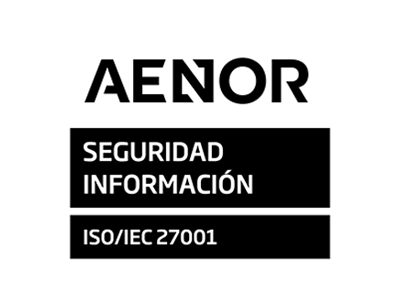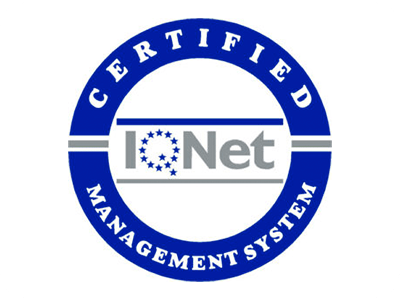The Rise of ChatGPT: 10 Chatbot Use Cases That You Need To Know
February 1st 2023

Chatbots have revolutionized the way businesses interact with customers and have become an indispensable tool across a range of industries. With the ability to automate routine tasks, chatbots can improve efficiency, increase customer satisfaction, and reduce operating costs. Let’s explore 10 chatbot use cases for different industries, from healthcare and finance to retail and hospitality.
ChatGPT quickly became the buzzword of December 2022. As the hype surrounding the viral chatbot increased, the understanding of how chatbots can be applied to different industries reached a wider audience. Chatbots have already been around for quite some time, in fact, the global chatbot marketing revenue reached $83.4 million in 2021 (Statista). But as we take the reins of the new year we’ll be seeing much more potential for this AI-powered technology. It’s estimated that the global chatbot market will be worth a staggering $454.8 million by 2027 (Statista).
It’s clear that Chatbots are already an integral part of business operations in a variety of industries. From customer service to marketing, chatbots offer a wide range of solutions that can help businesses operate more effectively and efficiently. Organizations can even use chatbots to engage customers in unique ways and further boost customer satisfaction. In this post, we’ll take a look at the 10 most popular chatbot use cases for different industries and how you can leverage them.
1. Customer Service
The customer service industry has seen a major transformation with the emergence of chatbots. They have been providing a faster, more efficient, and more cost-effective way of handling customer inquiries. No longer are customers required to wait for hours for a response to their query. Chatbots are now capable of understanding customer queries to provide near-instantaneous responses to customer inquiries. Did you know that using chatbots can reduce customer service costs by as much as 30% (IBM)? In turn, this helps customer service representatives become more productive by reducing the number of calls they need to handle. Instead, they can focus on understanding customer needs and preferences to make better decisions.
Summary of Chatbot Use Cases for Customer Service:
- Answering FAQs
- Checking inventory
- Help customers navigate your site
- Improving customer experience
- Helping with refunds, cancellations, and complaints
- Collecting customer feedback
- Tracking shipping
- Troubleshooting
- Direct customers to departments
2. Marketing
The world of marketing is constantly evolving with new tools and platforms for businesses to engage with their customers. One of the major game-changers in recent years has been chatbots. The use of chatbots in the marketing industry has been a driving force in improving customer engagement, increasing brand awareness, and driving sales. For example, chatbots can be integrated with websites and social media platforms to provide real-time customer support, answer questions, and provide product recommendations.
Summary of Chatbot Use Cases for Marketing:
- Generate leads
- Generate email lists
- Simplify pricing
- Promote products
- Make personalized recommendations
- Email collection
- Automate marketing campaigns
- Gather customer feedback
- Provide insights into customer behavior and preferences
- Improve customer engagement
- News updates
3. Human Resources
Chatbots can greatly benefit the human resources industry by automating routine tasks and improving overall efficiency. One of the most time-consuming aspects of human resources is recruitment. It’s ideal if your business is inundated with candidates but this puts an extra burden on staff which can become unsustainable in the long term. However, a chatbot can take care of automating tasks to free up time. For example, interest generation and background checks. Chatbots can help HR departments provide quick and efficient support to employees, freeing up HR staff to focus on more strategic initiatives.
Summary of Chatbot Use Cases for HR:
- Answer common employee questions
- Assist with onboarding
- Employee interaction
- Recruitment
- Evaluate employee performance and track targets
- Sharing company information and documentation
- Tracking attendance and hours worked
4. Healthcare
The healthcare industry is currently facing one of its greatest periods of demand, and healthcare professionals need support more than ever. In order to focus their attention on patients, the industry is looking to technology to offload time and energy. Did you know that over 70% of admin tasks in the healthcare industry could be automated using AI and chatbot technology (Insider Intelligence)? This is where the integration of chatbots demonstrates just how beneficial technology can be for healthcare. From facilitating collaboration and providing patient information to scheduling appointments and sending notifications for prescription refills, chatbots can save thousands of working hours and ease the burden for healthcare professionals.
Summary of Chatbot Use Cases for Healthcare:
- Schedule appointments
- Provide patient information
- Organize post-discharge follow ups
- Prescription notification
- Patient consultation requests
- Referrals
- Facilitate collaboration between peers
- Update records
- Send alerts
- Provide disease, diagnosis and treatment information
- Medication reminder
5. E-Commerce
The e-commerce industry has been going from strength to strength, with worldwide revenue projected to reach $7.39 trillion dollars by 2025 (Statista). This incredible success does amplify the need for new solutions to manage this growth. By utilizing chatbots, e-commerce businesses can make the most of customer engagement and drive sales. In fact, this year we can expect chatbots to generate over $100 billion in e-commerce transactions (Juniper Research).
Summary of Chatbot Use Cases for E-Commerce:
- Product recommendations
- Provide information about products
- Provide shipping and returns information
- Streamline the checkout process
- Send offers
- Re-engage customers with unfinished orders
- Offer 24/7 support
- Conduct customer research
6. Finance
As banking and finance options become more sophisticated and interactive, the industry has seen a rise in chatbots taking over straightforward administrative tasks. Customers are able to access information 24/7 and don’t need to depend on going to a physical location to talk to agents about common queries. This allows the industry to benefit from better resource allocation, become more far-reaching, and make better data-driven decisions.
Summary of Chatbot Use Cases for Finance:
- Assist with account management
- Transfers and payments
- Provide personalized recommendations
- Help clients with savings goals
- Provide data-driven insights
- Aid with sales
- Support cybersecurity and capture fraud
- Provide information on products, accounts, and actions
7. Government
Governments can also make sure of chatbots to streamline tasks and provide better interactions between citizens and services. By making the most of AI-powered chatbots, governments and citizens can benefit from easy access to information and services, increased availability to answer questions any time of day, consistency in answers, and ensure more productivity.
Summary of Chatbot Use Cases for Government:
- Provide access to public data
- Collect complaints
- Help with completing forms
- Assist with registration for government services
- Handle queries
- Provide information about government services
- Track the status of applications
- Immigration requests
- Support procurement processes
- Provide multilingual support
- Provide up-to-date analytics data
8. Hospitality
The prosperity and access to global travel mean that the hospitality industry has also seen significant growth in recent decades. In turn, there is a heavier reliance on technology to support this increase. Chatbots can support the hospitality industry by reducing time spent o with common queries, acting as concierges, providing information on services and amenities, and boosting review interactions. AI-powered chatbots can even help customers decide on which hotels to stay in depending on their preferences and budget.
Summary of Chatbot Use Cases for Hospitality:
- Improve customer experience
- Assist with room booking
- Provide information on amenities
- Assist with reservations
- Recommend local attractions and activities
- Answer FAQs
9. Education
During the 2020 pandemic technology was a vital lifeline for the education industry. It highlighted just how beneficial artificial intelligence can be in this industry. In particular, chatbots have been transforming student learning, student engagement, and access to information and resources.
Summary of Chatbot Use Cases for Education:
- Application process support
- Student and teacher FAQs
- Sharing notifications with students, parents, and teachers
- Informing students about extra activities
- Streamlining registration
- Sharing learning materials
- Provide guidance on academic programs
- Track student progress
- Student support
- Data collection
- Student sentiment analysis
10. Travel
As we travel more often and further away, technology is becoming an essential resource for travel and tourism businesses. A chatbot allows your business to provide support for international customers regardless of their location and time zone so that you don’t have to compromise potential sales. Chatbots can also collect important information regarding travel itineraries such as room types, seats, dietary requirements, visa information, transport, climate, and more.
Summary of Chatbot Use Cases for Travel:
- Flight booking
- Flight schedules
- Seat selection
- Handle customer complaints
- Provide personalized travel recommendations
- Enhance customer experience
- 24/7 support
Conclusion
In conclusion, chatbots have proven to be a valuable asset for businesses across various industries. From healthcare to finance, chatbots offer a cost-effective, efficient, and convenient way for companies to interact with their customers and streamline processes. As AI and natural language processing technology continue to advance, the use cases and potential applications of chatbots will only increase. It’s clear that chatbots are here to stay and will play an increasingly important role in the way businesses operate, interact with their customers, and make decisions.
Find out how our virtual assistant can simplify access to information, offer personalized experiences, reduce response time, and provide your business with infinite scalability.
Ready to see what we can do for you?
In the right hands, artificial intelligence can take human performance to a hitherto unimaginable level. Are you ready for evolution?




